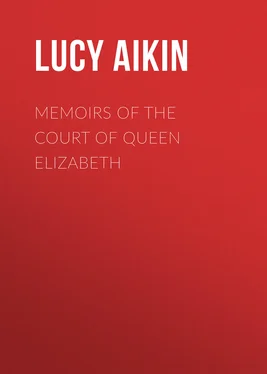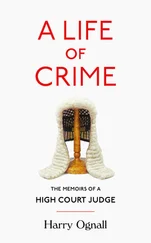Lucy Aikin - Memoirs of the Court of Queen Elizabeth
Здесь есть возможность читать онлайн «Lucy Aikin - Memoirs of the Court of Queen Elizabeth» — ознакомительный отрывок электронной книги совершенно бесплатно, а после прочтения отрывка купить полную версию. В некоторых случаях можно слушать аудио, скачать через торрент в формате fb2 и присутствует краткое содержание. Жанр: foreign_prose, История, foreign_edu, foreign_antique, на английском языке. Описание произведения, (предисловие) а так же отзывы посетителей доступны на портале библиотеки ЛибКат.
- Название:Memoirs of the Court of Queen Elizabeth
- Автор:
- Жанр:
- Год:неизвестен
- ISBN:нет данных
- Рейтинг книги:4 / 5. Голосов: 1
-
Избранное:Добавить в избранное
- Отзывы:
-
Ваша оценка:
- 80
- 1
- 2
- 3
- 4
- 5
Memoirs of the Court of Queen Elizabeth: краткое содержание, описание и аннотация
Предлагаем к чтению аннотацию, описание, краткое содержание или предисловие (зависит от того, что написал сам автор книги «Memoirs of the Court of Queen Elizabeth»). Если вы не нашли необходимую информацию о книге — напишите в комментариях, мы постараемся отыскать её.
Memoirs of the Court of Queen Elizabeth — читать онлайн ознакомительный отрывок
Ниже представлен текст книги, разбитый по страницам. Система сохранения места последней прочитанной страницы, позволяет с удобством читать онлайн бесплатно книгу «Memoirs of the Court of Queen Elizabeth», без необходимости каждый раз заново искать на чём Вы остановились. Поставьте закладку, и сможете в любой момент перейти на страницу, на которой закончили чтение.
Интервал:
Закладка:
On appointing him a member of her council, the queen addressed her secretary in the following gracious words:
"I give you this charge, that you shall be of my privy-council, and content yourself to take pains for me and my realm. This judgement I have of you, that you will not be corrupted with any gift, and that you will be faithful to the state, and that, without respect of my private will, you will give me that counsel that you think best: And that if you shall know any thing necessary to be declared to me of secrecy, you shall show it to myself only, and assure yourself I will not fail to keep taciturnity therein. And therefore herewith I charge you 36 36 "Nugæ Antiquæ."
."
Cardinal Pole was not doomed to be an eye-witness of the relapse of the nation into what he must have regarded as heresy of the most aggravated nature; he expired a few hours after his royal kinswoman: and Elizabeth, with due consideration for the illustrious ancestry, the learning, the moderation, and the blameless manners of the man, authorized his honorable interment at Canterbury among the archbishops his predecessors, with the attendance of two bishops, his ancient friends and the faithful companions of his long exile.
On November 23d the queen set forward for her capital, attended by a train of about a thousand nobles, knights, gentlemen, and ladies, and took up her abode for the present at the dissolved monastery of the Chartreux, or Charterhouse, then the residence of lord North; a splendid pile which offered ample accommodation for a royal retinue. Her next remove, in compliance with ancient custom, was to the Tower. On this occasion all the streets from the Charterhouse were spread with fine gravel; singers and musicians were stationed by the way, and a vast concourse of people freely lent their joyful and admiring acclamations, as preceded by her heralds and great officers, and richly attired in purple velvet, she passed along mounted on her palfrey, and returning the salutations of the humblest of her subjects with graceful and winning affability.
With what vivid and what affecting impressions of the vicissitudes attending on the great must she have passed again within the antique walls of that fortress once her dungeon, now her palace! She had entered it by the Traitor's gate, a terrified and defenceless prisoner, smarting under many wrongs, hopeless of deliverance, and apprehending nothing less than an ignominious death. She had quitted it, still a captive, under the guard of armed men, to be conducted she knew not whither. She returned to it in all the pomp of royalty, surrounded by the ministers of her power, ushered by the applauses of her people; the cherished object of every eye, the idol of every heart.
Devotion alone could supply becoming language to the emotions which swelled her bosom; and no sooner had she reached the royal apartments, than falling on her knees she returned humble and fervent thanks to that Providence which had brought her in safety, like Daniel from the den of lions, to behold this day of exaltation.
Elizabeth was attended on her passage to the Tower by one who like herself returned with honor to that place of his former captivity; but not, like herself, with a mind disciplined by adversity to receive with moderation and wisdom "the good vicissitude of joy." This person was lord Robert Dudley, whom the queen had thus early encouraged to aspire to her future favors by appointing him to the office of master of the horse.
We are totally uninformed of the circumstances which had recommended to her peculiar patronage this bad son of a bad father; whose enterprises, if successful, would have disinherited of a kingdom Elizabeth herself no less than Mary. But it is remarkable, that even under the reign of the latter, the surviving members of the Dudley family had been able to recover in great measure from the effects of their late signal reverses. Lord Robert, soon after his release from the Tower, contrived to make himself so acceptable to king Philip by his courtier-like attentions, and to Mary by his diligence in posting backwards and forwards to bring her intelligence of her husband during his long visits to the continent, that he earned from the latter several marks of favor. Two of his brothers fought, and one fell, in the battle of St. Quintin's; and immediately afterwards the duchess their mother found means, through some Spanish interests and connexions, to procure the restoration in blood of all her surviving children. The appointment of Robert to the place of master of the ordnance soon followed; so that even before the accession of Elizabeth he might be regarded as a rising man in the state. His personal graces and elegant accomplishments are on all hands acknowledged to have been sufficiently striking to dazzle the eyes and charm the heart of a young princess of a lively imagination and absolute mistress of her own actions. The circumstance of his being already married, blinded her perhaps to the nature of her sentiments towards him, or at least it was regarded by her as a sufficient sanction in the eyes of the public for those manifestations of favor and esteem with which she was pleased to honor him. But whether the affection which she entertained for him best deserved the name of friendship or a still tenderer one, seems after all a question of too subtile and obscure a nature for sober discussion; though in a French " cour d'amour " it might have furnished pleas and counterpleas of exquisite ingenuity, prodigious sentimental interest, and length interminable. What is unfortunately too certain is, that he was a favorite, and in the common judgement of the court, of the nation, and of posterity, an unworthy one; but calumny and prejudice alone have dared to attack the reputation of the queen.
Elizabeth had no propensity to exalt immoderately her relations by the mother's side;—for she neither loved nor honored that mother's memory; but several of the number may be mentioned, whose merits towards herself, or whose qualifications for the public service, justly entitled them to share in her distribution of offices and honors, and whom she always treated with distinction. The whole illustrious family of the Howards were her relations; and in the first year of her reign she conferred on the duke of Norfolk, her second-cousin, the order of the garter. Her great-uncle lord William Howard, created baron of Effingham by Mary, was continued by her in the high office of lord-chamberlain, and soon after appointed one of the commissioners for concluding a peace with France. Lord Thomas Howard, her mother's first-cousin, who had treated her with distinguished respect and kindness on her arrival at Hampton Court from Woodstock, and had the further merit of being indulgent to protestants during the persecutions of Mary, received from her the title of viscount Bindon, and continued much in her favor to the end of his days.
Sir Richard Sackville, also her mother's first-cousin, had filled different fiscal offices under the three last reigns; he was a man of abilities, and derived from a long line of ancestors great estates and extensive influence in the county of Sussex. The people, who marked his growing wealth, and to whom he was perhaps officially obnoxious, nicknamed him Fill-sack:
in Mary's time he was a catholic, a privy-councillor, and chancellor of the court of Augmentations; under her successor he changed the first designation and retained the two last, which he probably valued more. He is chiefly memorable as the father of Sackville the poet, afterwards lord Buckhurst and progenitor of the dukes of Dorset.
Sir Francis Knolles, whose lady was one of the queen's nearest kinswomen, was deservedly called to the privy-council on his return from his voluntary banishment for conscience' sake; his sons gained considerable influence in the court of Elizabeth; his daughter, the mother of Essex, and afterwards the wife of Leicester, was for various reasons long an object of the queen's particular aversion.
Читать дальшеИнтервал:
Закладка:
Похожие книги на «Memoirs of the Court of Queen Elizabeth»
Представляем Вашему вниманию похожие книги на «Memoirs of the Court of Queen Elizabeth» списком для выбора. Мы отобрали схожую по названию и смыслу литературу в надежде предоставить читателям больше вариантов отыскать новые, интересные, ещё непрочитанные произведения.
Обсуждение, отзывы о книге «Memoirs of the Court of Queen Elizabeth» и просто собственные мнения читателей. Оставьте ваши комментарии, напишите, что Вы думаете о произведении, его смысле или главных героях. Укажите что конкретно понравилось, а что нет, и почему Вы так считаете.












